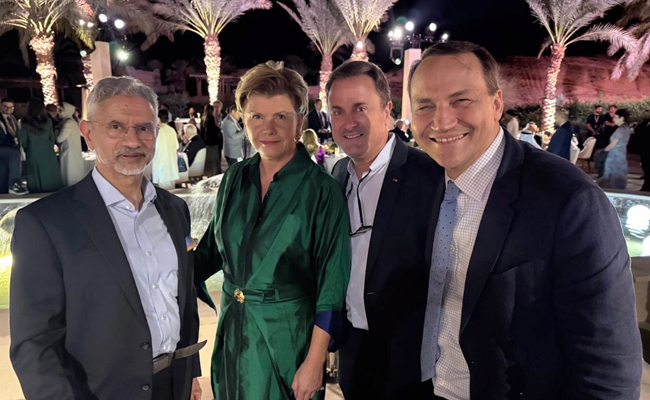New Delhi: With 46,963 new coronavirus infections being reported in a day, India's COVID-19 caseload rose to 81,84,082, while the number of people who have recuperated from the disease surged to 74.91 lakh, according to the Union Health Ministry data updated on Sunday.
The recovery rate stood at 91.54 per cent.
The country's COVID-19 death toll climbed to 1,22,111 with 470 new fatalities, the data updated at 8 am showed.
A total of 74,91,513 people have recuperated from COVID-19 so far taking the national recovery rate to 91.54 per cent while the case fatality rate was recorded at 1.49 per cent.
The number of active cases of COVID-19 remained below 6 lakh for the third consecutive day.
There are 5,70,458 active cases of coronavirus infection in the country as on date which comprises 6.97 per cent of the total caseload, the data stated.
India's COVID-19 tally had crossed the 20-lakh mark on August 7, 30 lakh on August 23 and 40 lakh on September 5 . It went past 50 lakh on September 16, 60 lakh on September 28, 70 lakh on October 11 and crossed 80 lakh on October 29.
According to the ICMR, a cumulative total of 10,98,87,303 samples have been tested up to October 31 with 10,91,239 samples being tested on Saturday.
Let the Truth be known. If you read VB and like VB, please be a VB Supporter and Help us deliver the Truth to one and all.
New Delhi (PTI): Bihar Minister Nitin Nabin was on Sunday appointed as the BJP national working president and is likely to eventually succeed JP Nadda as its national president, signalling a generational shift in the ruling party.
Nabin, 45, son of late Nabin Kishore Prasad Sinha -- a veteran BJP leader and former MLA -- is considered dynamic and ideologically rooted, and deeply committed to the organisation, party leaders said.
A five-time MLA, he represents Bankipur assembly constituency in Bihar and has served twice as a minister in the Bihar Government.
His tenures as a minister in Bihar and his role as the party incharge of Chhattisgarh have been truly outstanding and marked by his effective organisational leadership, they said.
The BJP parliamentary board picked Nabin for the post.
"Bharatiya Janata Party's parliamentary board has appointed Nitin Nabin, a minister in the Bihar government, the Bharatiya Janata Party’s national working president with immediate effect," BJP national general secretary Arun Singh said in a notification.
ALSO READ: Party over: Goa cracks down on illegal nightclubs ahead of festive season
Nabin, who belongs to the Kayastha community, is likely to succeed incumbent BJP chief Nadda and is one of the youngest leaders to occupy the post, the leaders said.
Nadda, 65, was appointed the BJP President in January 2020 and has already completed his full term. He was granted extensions to lead the party through the 2024 Lok Sabha elections.
Congratulating Nabin on his appointment, Prime Minister Narendra Modi said he has distinguished himself as a "hardworking Karyakarta" and expressed confidence that his energy and dedication will strengthen the party.
"He is a young and industrious leader with rich organisational experience and has an impressive record as MLA as well as Minister in Bihar for multiple terms. He has diligently worked to fulfil people's aspirations.
"He is known for his humble nature and grounded style of working. I am confident that his energy and dedication will strengthen our Party in the times to come. Congratulations to him on becoming the BJP National Working President," PM Modi said on X.
Nabin has also worked extensively for Yuva Morcha. His appointment reflects the BJP’s focus on capable leadership and signals a generational shift, the leaders said.
BJP chief Nadda also greeted Nabin and said he was confident that the party would attain new heights under his leadership.
"I extend my heartfelt congratulations to the dynamic BJP leader from the sacred land of knowledge and culture, Bihar, and Minister in the Bihar Government, Shri Nitin Nabin ji on his appointment as the National Working President of the Bharatiya Janata Party.
"I am fully confident that under the guidance of the esteemed Prime Minister Shri Narendra Modi ji and your leadership, the organisation will reach new heights with the sentiments of nation-building and public service. Heartfelt best wishes for your illustrious and successful tenure," he said on X.





